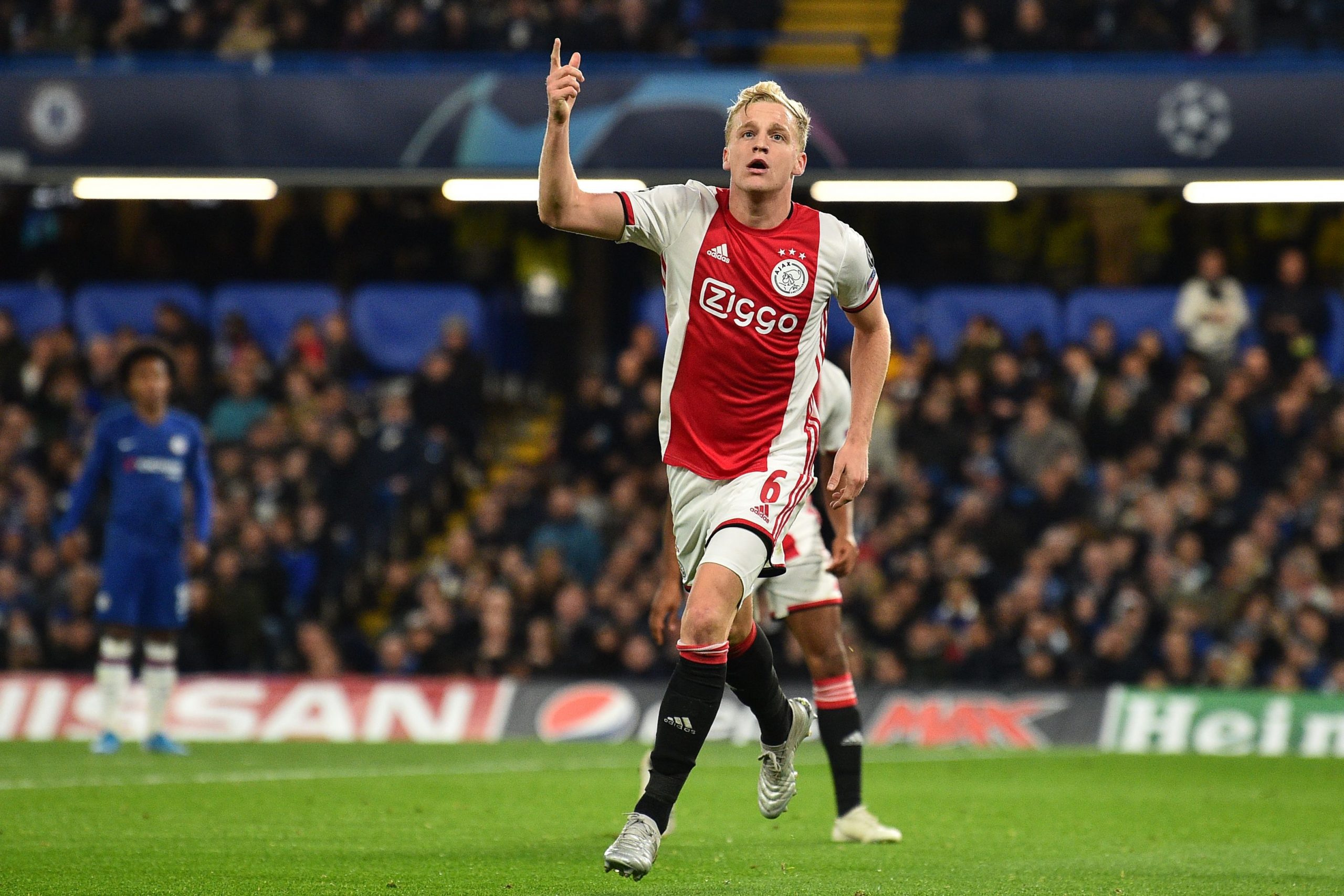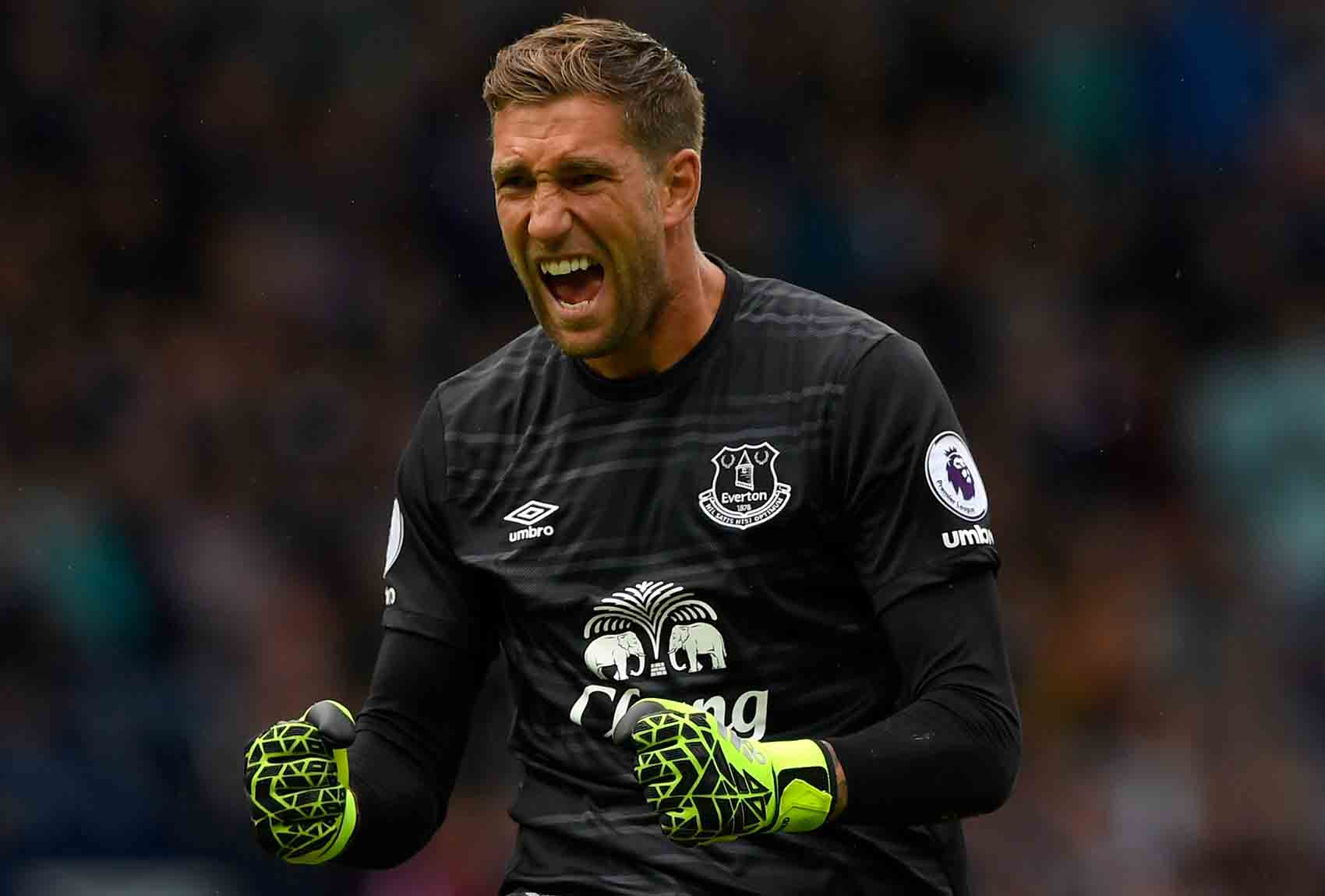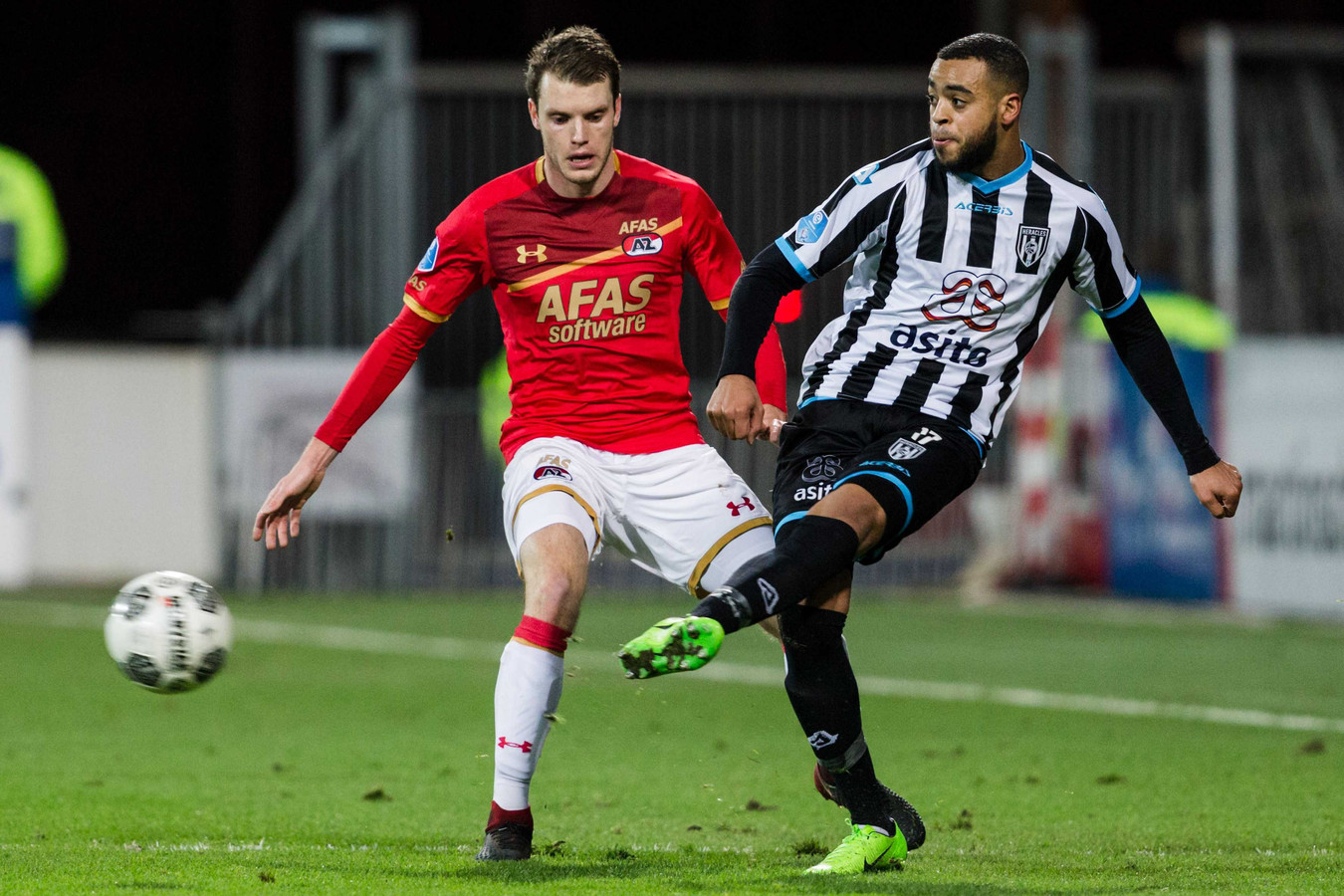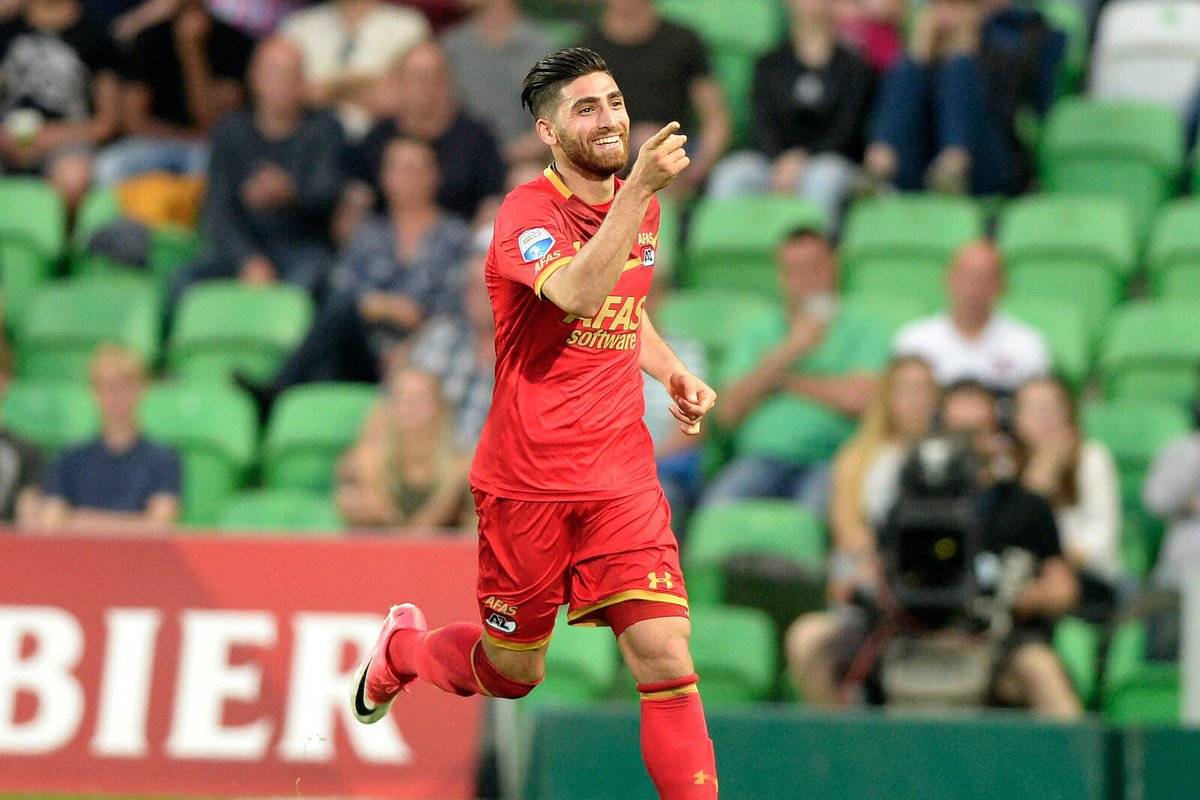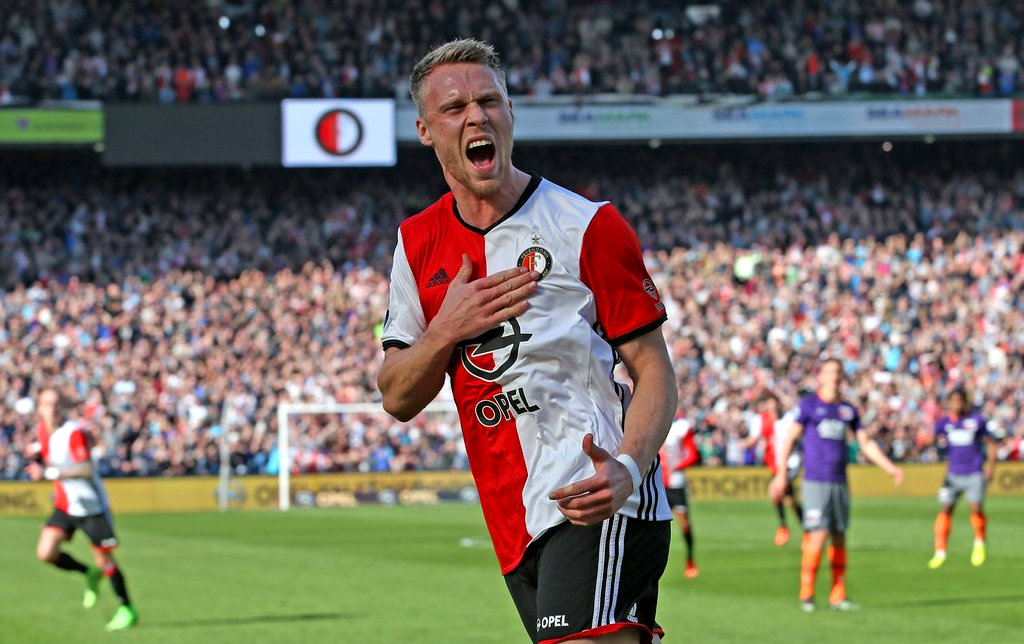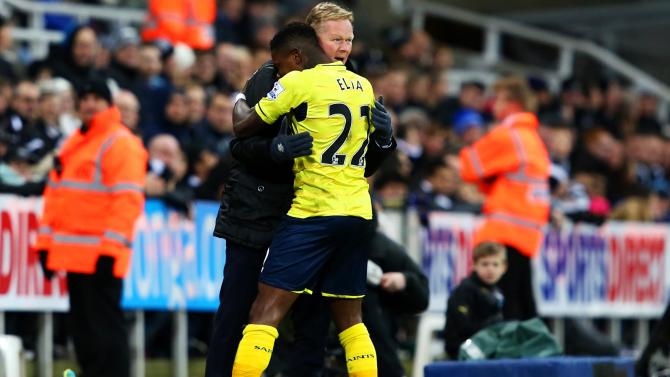Battle weary, deadlocked in combat, two goals apiece on aggregate and deep into extra time at the Wildparkstadion, Karlsruher; after a draining 209 minutes over two legs of football, the two teams couldn’t be separated.
Both traditional names in the German game; one, Karlsruher SC, absent from the top flight for six seasons, now seemingly in the ascendency, riding the on the crest of a wave created by an emotive home crowd and most people’s favourites to finally consign the once mighty but now struggling, Hamburger SV, the only Bundesliga club to have never been relegated, to the drop for the first time in 52 years.
With 115 minutes on the clock, the ball was drilled across the home team’s penalty box and found an unmarked, Nicolai Muller who simply couldn’t miss; Hamburger SV were safe for another year as Muller jubilantly charged through the police cordon to celebrate with the delirious travelling support.
Or were they?
If not for a last minute penalty save from German international, Rene Adler, Rafael van der Vaart’s final match for HSV, where he made 152 appearances and scored 45 goals over two spells, could yet have ended on a bitter note writes Steven Davies.

For Van der Vaart, once touted as being amongst the most creative players in the world, the past few months had been a challenging period for both the ailing Bundesliga giants and their iconic Dutchman who had been informed in March 2015 that he would not be offered a contract extension.
Thoughts immediately turned to the 32-year-old’s future destination; Spain, Turkey, Scotland, the USA, even a return to his native Netherlands with boyhood club, Ajax, were all mooted, while talk of unfulfilled potential remained, as ever, a constant companion.
Like his career, the story of the man himself is an unusual one.
Born in Heemskerk to a Dutch father and Spanish mother; Rafael van der Vaart grew up on a trailer park in Beverwijk near the banks of the North Sea which backed onto De Kennemers, his first club before he joined the famed AFC Ajax Academy at the age of 10.
Reminiscing of his childhood while a Tottenham Hotspur player in 2011, Van der Vaart told the Sunday Mail: “I had a fantastic time as a child. I like to go back there when I can.”
Playing football was always the most important thing to me. I always wanted to be a striker, to have a role as one of the stars in the team. When you want to play in that area of the pitch you need to work hard to become a top player.
“When I was growing up the ball was my best friend. I didn’t have an interest in toy cars or fire engines, computers or playing cowboys, it was only a football. It’s the way it had to be.”
“It was also a benefit to grow up living in a caravan. We had so many people near to us and many kids the same age.”
“We played football on the street and would be out there kicking a ball for hours and hours.”

Named AFC Ajax Talent of the Future in 1999, it was only a matter of time before Van der Vaart made his breakthrough at first team level and on 19th April 2000, aged just 17, he made his first team debut in a 1-1 draw against FC Den Bosch. Later, he was awarded both AFC Ajax Talent of the Year 2000 and Amsterdam Talent of the Year 2000.
The following season, Van der Vaart’s playing time increased and so too did this precocious young talent’s notoriety; being awarded AFC Ajax Player of the Year 2001, Amsterdam Sportsman of the Year 2001 as well as receiving the prestigious Dutch Football Talent of the Year (Young Player) 2001.
In spite of missing a great deal of the following season with two serious knee injuries, the latter of which requiring the removal of his entire meniscus, Van der Vaart, who netted 17 times in just 27 appearances, was named European Talent of the Year 2002 as the club completed the domestic double, winning both the Eredivisie Championship and the KNVB Beker with a 3-2 victory over FC Utrecht. Injury again limited his appearances the following season but did not diminish his effectiveness when on the field of play as he notched 22 goals in 30 appearances in all competitions. Although 2002/03 was a trophy-less season for the Amsterdam giants, save for success in the season opening, Johan Cruijff-schaal, Van der Vaart was on hand to fire the club into the knockout stages of the UEFA Champions League with a crucial strike against Olympique Lyonnais.
Having represented his country at U17, U19 and U21 levels, an 18-year-old Van der Vaart was handed his full international debut against Andorra on 6th October 2001. He would go on to amass over 100 caps for the Netherlands and was a part of the Dutch squads selected for Euro 2004, 2006 FIFA World Cup, Euro 2008, 2010 FIFA World Cup and Euro 2012; being named vice-captain in 2010 and 2012 behind Giovanni van Bronckhorst and later Mark van Bommel.
As was often the case at club level, luck frequently deserted Van der Vaart on the international stage when it came to the big tournaments, playing a bit part role at both Euro 2004 and the 2006 FIFA World Cup; as first, Dick Advocaat and then Marco van Basten, failed to successfully accommodate Van der Vaart in their respective formations. Although the latter did manage to find a role for Van der Vaart two years later as the Netherlands put together an impressive run to the quarter finals of Euro 2008 in Austria and Switzerland before being surprisingly eliminated by Russia.
Despite a turbulent time off the field, where his relationship with The Music Factory VJ, Sylvie Meis, to whom he was married in 2005, celebrity lifestyle and physical fitness all dominated the headlines, Van der Vaart was influential in leading Ajax to another Eredivisie crown in 2003/04.
The following season, Ajax coach, Ronald Koeman named Van der Vaart team captain but he was stripped of the honour a few months later following a high profile fall out with Ajax teammate, Zlatan Ibrahimovic, which led to the Swede’s exit from the Amsterdam Arena and Van der Vaart’s later refusal to play out of position in a UEFA Champions League match in December 2004. Incessant injury problems, a deteriorating relationship with Koeman as well as his successor Danny Blind, coupled with abuse from opposing fans regarding his relationship with Meis, led Van der Vaart to announce that he would leave the club in the summer of 2005.
Compared to David and Victoria Beckham, Van der Vaart and in particular, Meis, became the focus of anti-Semitic chants and unfounded verbal assaults from rival supporters. Such were the veracity of these that a match against ADO Den Haag in September 2004 was stopped by the referee with the crowd being warned via the stadium announcer, that the match could be abandoned if the abuse persisted. Such was the furore, the issue was even discussed in the Dutch parliament.

Instead of joining one of Europe’s leading clubs, such as Manchester United, Real Madrid or AC Milan, Van der Vaart opted instead to pen a deal with German side, Hamburger SV for a bargain fee of €5.5m. Two years removed from being touted as one of the world’s brightest young stars who heralded the rejuvenation of the famed Ajax youth system, the Dutch starlet found himself making an inauspicious debut for his new club in the second round of the UEFA Intertoto Cup.
Dutch legend, Johan Cruijff echoed the confusion of many at the time in his column in De Telegraaf: “I don’t know what to say about it or what Rafael van der Vaart is doing in Hamburg. This would not have been thinkable two years ago, obviously things have not gone well for Van der Vaart.”
Despite having never been relegated in the history of the Bundesliga, Hamburger SV’s glory days were fading fast; the ‘Red Shorts’ having last tasted success in 1983, when the club secured both the Bundesliga crown and the UEFA European Cup – the year Van der Vaart was born.
Speaking to German news website Netzeitung shortly after his arrival in north Germany, Van der Vaart shed some light on his unusual choice of relocation: “When I came to Hamburg I was welcomed with open arms and the atmosphere just felt right. I don’t want people to think this is just a stepping stone for me, I want to achieve things with Hamburg.”
With a point to prove, Van der Vaart played a central role in Hamburger SV’s third place finish and 2005 UEFA Intertoto Cup triumph, scoring 16 goals in 35 appearances in his first season at the club. The following season saw Van der Vaart awarded the captaincy but also the return of his injury woes. Struggling for much of the season in the bottom half of the table, the club eventually attained a seventh place finish following the arrival of fellow Dutchman, Huub Stevens as coach.
The final season of what would become his first spell with HSV was Van der Vaart’s most prolific for the club, netting 21 times in 44 appearances. Inevitably, as his contract with Hamburger SV wound down with the mercurial Dutchman opting out of signing an extension, rumours began to circulate as to where Van der Vaart would be playing in 2008/09, with many of European football’s biggest clubs being lined up as potential suitors.
Arguably, it was the biggest club of them all who eventually won the race to Van der Vaart’s much sought after signature, when Real Madrid agreed to pay a fee of €13m to Hamburger SV for the Dutch international’s services. Real’s only summer signing in 2008, Van der Vaart, who agreed a five year contract with the Spanish giants, scored on his league debut, a 4-3 victory over CD Numancia and was nominated for the prestigious Ballon d’Or in October 2008.
However, the Dutchman netted only five times in 42 appearances and, amid rumours of a fall out with coach, Juande Ramos, was largely used as a substitute towards the end of a disappointing campaign. The following season began with a reported fall out with Ramos’ successor, Manuel Pellegrini; Van der Vaart even found himself without a squad number in preseason as his preferred number 23 was handed to Esteban Granero. An agreement was eventually reached between player and club; Van der Vaart was awarded his preferred number and Granero, the number 24 shirt instead.
Despite his troubles at club level, Dutch Coach, Bert van Marwijk instilled Van der Vaart as an important first team player at international level and on the 12th August 2009 he was even given the captain’s armband for the Oranje in a friendly against England, scoring a goal in a game that ended 2-2. Later, Van der Vaart helped the Netherlands to an appearance in the FIFA World Cup Final in 2010 in South Africa where a strike by Spain’s, Andres Iniesta broke Dutch hearts.
In spite of Van der Vaart reiterating an intention to see out his contract with Real, an £8m bid by Tottenham Hotspur on 31st August 2010 was accepted and the Dutchman signed a four year deal with the London club. After which, speaking to Marca, Van der Vaart shed some light on his decision, sighting the fact that Los Blancos had wanted to offload him a year earlier after the arrival of Cristiano Ronaldo and Kaka but that he had refused as his wife was undergoing treatment for breast cancer at the time: “She had a very serious illness and it is true that she had to be treated at the Clinica Quiron. Last season, they wanted me to leave but I couldn’t leave for that reason.”

Opening his account with three goals in four Premier League games in addition to a goal and an assist in two UEFA Champions League games, Van der Vaart was named Premier League Player of the Month for October 2010.
The Dutchman ended a stellar debut season with 15 goals in 36 appearances; finishing as the club’s top scorer in the Premier League with 13, almost a quarter of the club’s overall total for the season, as well as recording nine assists.
The following season, Van der Vaart equalled a club record when he scored the second in a 3-1 victory over Queen’s Park Rangers on 30th October 2011, scoring in five successive Premier League games and would end a consistent season with 13 goals in 40 appearances.
On the international stage however, it would be disappointment once more, despite scoring a goal in the third and final group game against Portugal at Euro 2012, it proved too little to save a disappointing campaign for van Marwijk’s Netherands, which ended with a Cristiano Ronaldo double sending Van der Vaart and the Dutch home early from the tournament.
Rumours of renewed interest from the Bundesliga surfaced as the transfer window drew to a close in August 2012, with former club Hamburger SV and Schalke 04 interested in securing the Dutch international. Eventually, Van der Vaart would opt for a return to the familiar and re-joined Hamburger SV for a second time; being unveiled initially as the club’s new vice-captain before being appointed captain once more in April 2013, succeeding Heiko Westermann.
However, Van der Vaart’s second spell with HSV would be a disappointing one when compared to his first. With the club in decline, a slew of managers came and went, each failing to turn around the club’s ailing fortunes; with Thorsten Fink, Rodolfo Esteban Cardoso, Bert van Marwijk, Mirko Slomko, Josef Zinnnauer, Peter Knabel and Bruno Labbadia all spending time in the hot seat at the Imtech Arena between Van der Vaart’s return to the club and his departure at the end of his contract in the summer of 2015.

Things were little better away from the field. On New Year’s Eve 2012, Van der Vaart’s personal life unravelled once more as he and wife Sylvie, separated amid accusations of domestic abuse which Van der Vaart publically refuted and of his wife having had an affair. But, speaking in January 2013 to German newspaper, Bild, Van der Vaart publically apologised for his actions: ‘‘It was very foolish of me. I’m an idiot. I’m very sorry. It should never have happened.”
His wife responded by telling the same newspaper that they had resolved their differences: ‘‘I have forgiven him already.”
Despite being on more amicable terms; the couple, whose only child, Damien Rafael was born on 28th May 2006, separated shortly thereafter.
On the field, a seventh place finish in 2012/13 was followed by an alarming slide the following season which saw the club finish 16th and have to scrape through a promotion/relegation playoff with Sp Vgg Greuther Furth on away goals to retain their Bundesliga status.
Meanwhile, any hopes Van der Vaart may have harboured of making Louis van Gaal’s Dutch squad for the 2014 FIFA World Cup were dashed when a calf injury forced him to withdraw after having been named in the provisional 30-man squad; seemingly bringing his international career to an ignominious end.
The 2014/15 Bundesliga campaign was little better and history repeated itself with Hamburger SV’s 16th place finish and the club coming through the promotion/ relegation playoffs by the skin of its teeth once more, this time beating Karsruher SC 3-2 on aggregate.
In his second spell with Hamburger SV, Van der Vaart was far less effective on the field; scoring 16 goals in 78 appearances over three seasons between August 2012 and June 2015. It is this record of diminishing returns on HSV’s substantial investment that led the fallen Bundesliga giants to opt against renewing the Dutchman’s contract.
It is also his recent record which has led potential suitors to harbour doubts about taking the plunge on the 32-year-old.

In late March 2015, soon after Hamburger SV announced that they and their enigmatic Dutch playmaking would be parting ways at the end of the 2014/15 Bundesliga season, reports surfaced of a potential move to Major League Soccer; with Sporting Kansas City CEO, Robb Heineman tweeting that the club had held talks with the player.
Asked about the prospect of heading to America, Van der Vaart told Kicker in March 2015, “Everything’s open at the moment, but I can imagine playing in America. I want to keep playing at a good level for a few years.”
But, a few weeks later, Sporting Kansas City coach, Peter Vermes revealed to the Kansas City Star that the Dutchman’s wage demands had put a halt on any potential move stateside, “It wouldn’t make sense for us. No disrespect to him, but it doesn’t make sense for the kind of numbers we’re talking.”
At the beginning of May 2015, Bild reported that a sentimental return to boyhood club, Ajax was on the cards with the club attempting to force Van der Vaart’s hand, issuing their former captain an ultimatum; the Amsterdam giants reportedly offering Van der Vaart a yearly salary of €1 million, plus a signing-on fee of another million.
At the time, Ajax coach, Frank De Boer urged Van der Vaart to make a decision on his future, telling Dutch TV AT5: “I understand that Rafael can’t immediately say yes. But we have issued an ultimatum to him. It’s about how he sees his future. Rafa also has to want [a return home]. I think that Rafael can be a good reinforcement.”
But by the end of the month, speaking to Voetbal International, Robert Geerlings, Van der Vaart’s agent, dismissed the option of a return home in favour of exploring other options including those from clubs in Spain, Turkey, Scotland and Italy, “Rafael has yet to decide his future. Ajax have waited long enough and it’s courtesy that we inform the club.”
His ambition as strong as ever, despite falling out of favour with Bondscoach, Guus Hiddink, Van der Vaart has stated he has no intention of retiring from international football and still harbours hopes of being selected should the Netherlands qualify for Euro 2016. Speaking to Kicker in March 2015, the Dutchman reiterated, “I will never retire, because I believe that it’s a great honour to play for your country. Should I find a good club and play well there, I can still be of value for the national team.”
This ambition, driven by a desire to leave a legacy, to not merely play a part but instead be the focal point at both club and international level became clear as Van der Vaart made his final decision; a decision every bit as unconventional as his career to date.

At the beginning of June 2015, after much speculation, Van der Vaart confirmed his intention to link up with newly promoted La Liga club, Real Betis; confirming to De Telegraaf that a discussion with sporting director, Eduardo Macia sold him on a move to Andalucía.
“Eduardo Macia told me Betis want to be the fourth best team in Spain; that in a short space of time the club will return to the upper echelons of La Liga. It’s a wonderful project.”
Having reportedly taken a pay cut, the move will see him relocate closer to family in nearby Chiclana, in the neighbouring Cadiz province, “My roots are also here, so I want to make my contribution.”
The chance to be the fulcrum of this “wonderful project” clearly swayed the Dutchman’s thinking as he reportedly turned down Ajax’s much more lucrative offer to take up the challenge with Los Verdiblancos; a club whose one and only La Liga triumph to date occurred in 1935, last tasted Copa del Rey success in 2005 and have spent recent seasons yo-yo-ing between Spain’s top two divisions.
Unconventional, unpredictable and as enigmatic as ever; Rafael Van der Vaart will relish the prospect of being the man to take the expectancy of an ambitious but unfashionable club upon his shoulders for one more “wonderful project” in an eventful career.

Click on Steven’s name above to follow him on Twitter
/cdn.vox-cdn.com/uploads/chorus_image/image/67314560/1228211459.jpg.0.jpg)
